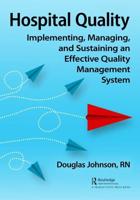Publisher's Synopsis
Bachelor Thesis from the year 2024 in the subject Business economics - Miscellaneous, University of applied sciences, Düsseldorf, language: English, abstract: In the landscape of German SMEs, a significant challenge looms on the horizon: business succession. Recent figures from KfW indicate that a third of German entrepreneurs are over 60, accounting for about 1.2 million individuals. By the end of 2026, an estimated 15% of Germany's 3.8 million SMEs are anticipated to undergo succession. The most critical obstacle in this transition is the acute shortage of suitable successors, a gap that threatens the success of many transfer plans. As a result, approximately 46,000 companies are at risk of failing in their succession efforts. This situation is further compounded by a 36% increase, from 2018 to 2022, in businesses needing successors compared to 2010 to 2014, indicating a growing trend of retiring owners but fewer candidates to take their place. The IfM Bonn estimates about 772,000 family businesses are set for succession, with around 190,000 are ready for transfer between 2022 and 2026. This scenario underscores the necessity of continuity for economic stability and necessitates a deep dive into business succession research. Business succession is not merely a transaction but a complex, multifaceted process. It encompasses not only legal and financial considerations but also addresses societal and psychological elements. Effective succession planning demands longterm preparation and strategic decision-making, considering both business management and the human elements involved. This thesis adopts a deductive approach, employing agency theory as a foundational framework to dissect the nuances of business succession. Beginning with a broad theoretical perspective, the study narrows down to address specific succession-related challenges. A rigorous literature review forms the bedrock of this research, integrating insights from academic journals, books, case stud












